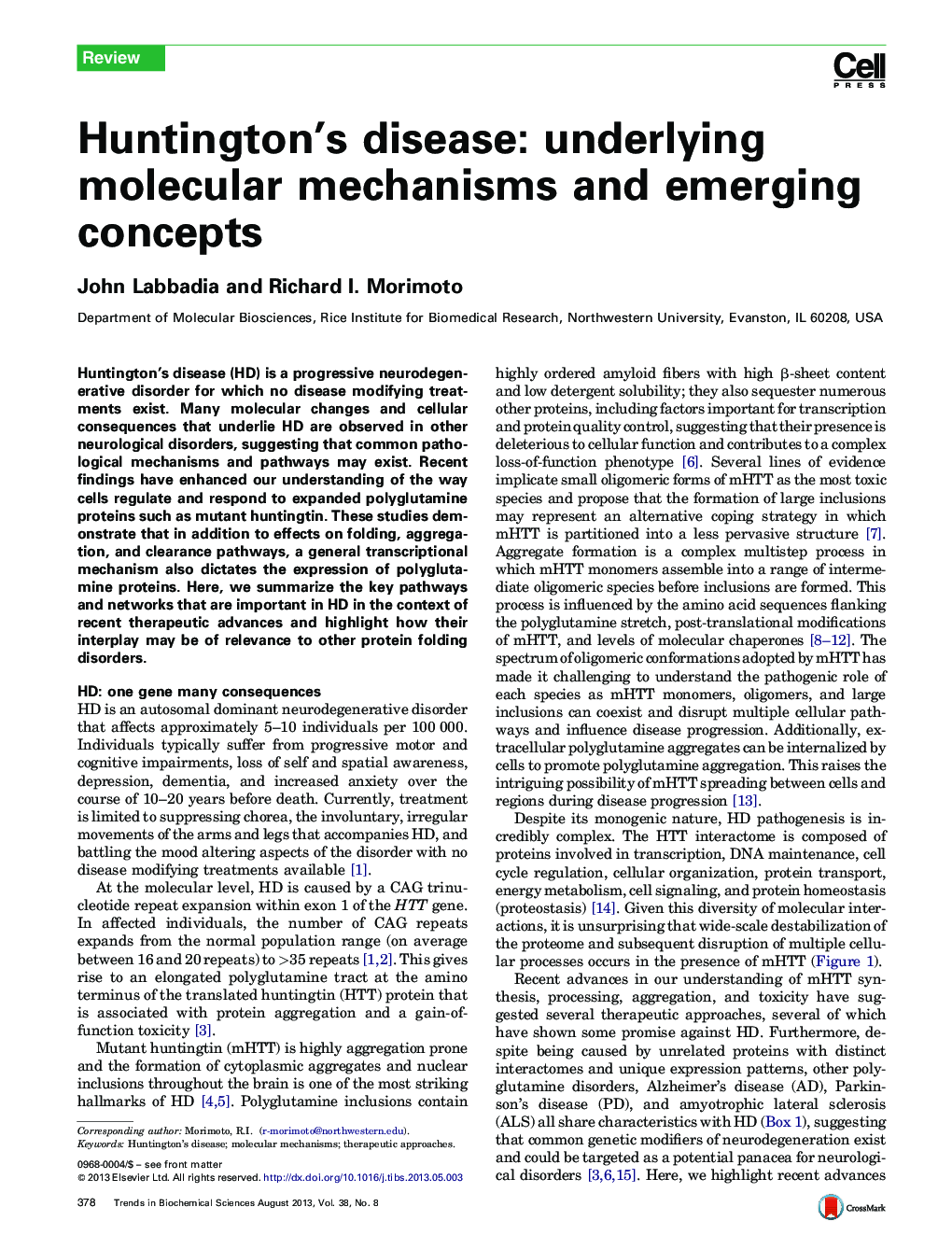| Article ID | Journal | Published Year | Pages | File Type |
|---|---|---|---|---|
| 2031637 | Trends in Biochemical Sciences | 2013 | 8 Pages |
•Spotlight on key advances in our understanding of molecular dysfunction and HD.•Description of novel pathways influencing intracellular levels of mutant huntingtin.•Exciting new therapeutic strategies involving gene silencing and small molecules.•Emphasis on molecular similarities between HD and other neurological disorders.
Huntington's disease (HD) is a progressive neurodegenerative disorder for which no disease modifying treatments exist. Many molecular changes and cellular consequences that underlie HD are observed in other neurological disorders, suggesting that common pathological mechanisms and pathways may exist. Recent findings have enhanced our understanding of the way cells regulate and respond to expanded polyglutamine proteins such as mutant huntingtin. These studies demonstrate that in addition to effects on folding, aggregation, and clearance pathways, a general transcriptional mechanism also dictates the expression of polyglutamine proteins. Here, we summarize the key pathways and networks that are important in HD in the context of recent therapeutic advances and highlight how their interplay may be of relevance to other protein folding disorders.
